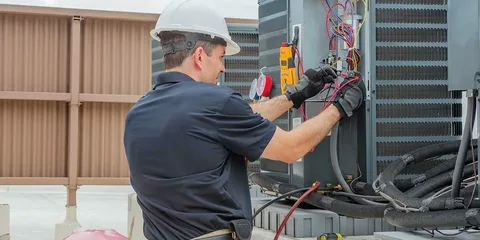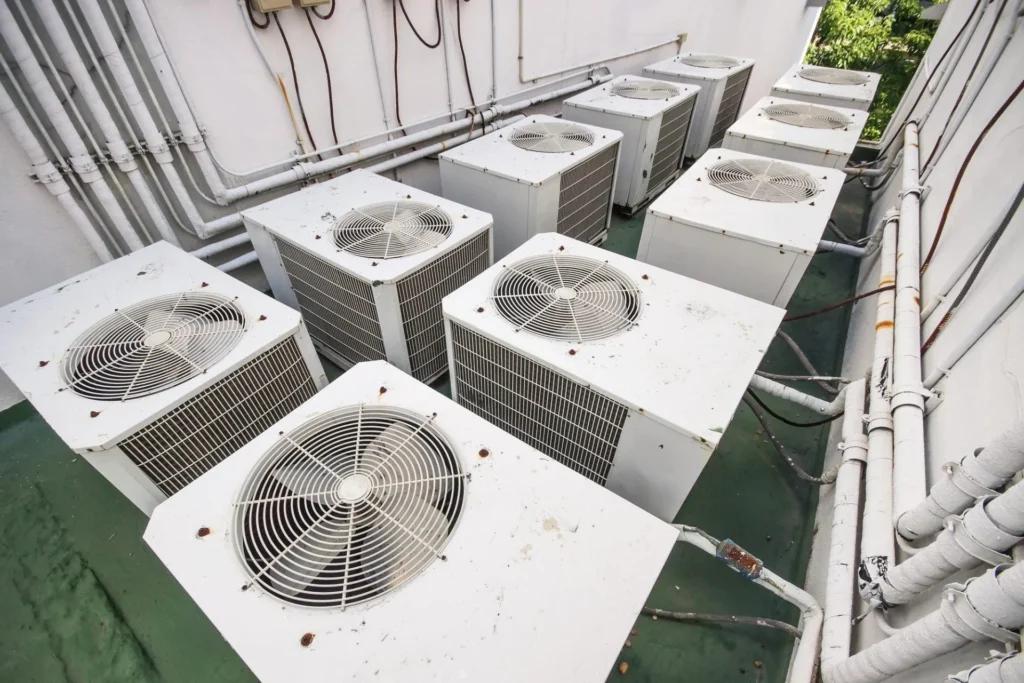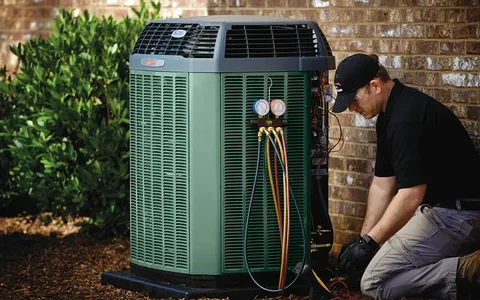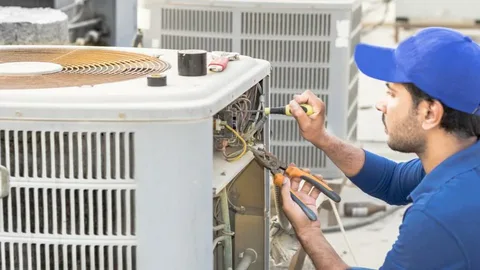
8 Ways to Choose the Best HVAC Installation Contractors for Your Business
Selecting the correct HVAC installation contractor is crucial for ensuring the best performance, efficiency, and longevity of the HVAC system, which stands for heating, ventilation, and air conditioning. Expert installation ensures comfort and promotes energy efficiency with lower operating costs. With many HVAC installation contractors in the market, finding the best among them for your business may be challenging. Following is a step-by-step guide on choosing the best HVAC installation contractors based on eight essential factors that will make your selection easier.
Evaluate Experience and Expertise
Much attention has been given to experience and expertise in HVAC installation, as such projects require high sophistication. An experienced HVAC installation contractor can easily handle all types of complicated installations and is more likely to do the job so that your system works at an optimum level.
Years in Business:
How many years the contractor has been in the business tends to reflects his reliability for service provision. The well-established contractors must have gained extensive experience in the trade and have probably been confronted with and overcome various problems. In this regard, this earns them a better position of tackling the installation challenges in multiple dimensions. You shall be considering among other factors the previous record and the kind of projects undertaken by the contractor. Generally, a contractor with several years of experience is better prepared to deal with general and complicated HVAC installations.
Specialization:
Of course, there is also specialization. Commercial HVAC systems are much more complicated than those installed in a single-family house. They typically call for larger units with more sophisticated controls and must comply with various criteria pertinent to efficiency and safety. Given these factors, working with people specializing in commercial HVAC services is preferable. Such specialists will be better accustomed to what the specific demands on commercial systems are. They will see to it that your installation has been carried out according to the standard conditions of the industry as well as to the regulatory demands.
Certifications and Training:
These certifications prove that a contractor invests in professional growth and follows standards set by the relevant authorities. Ensure the contractor is certified by organizations like North American Technician Excellence, HVAC Excellence, or the Refrigeration Service Engineers Society. Such accreditation proves that the contractor has undergone rigorous training and testing and thus possesses the appropriate expertise to conduct a quality installation.

Check their license and insurance
Proper license and insurance protect not only your business but also the contractor itself. These insurances and licenses help meet legal requirements and offer financial protection against accidents and damaged property.
Licensing:
This would ensure the contractor has a valid HVAC license within your state or region. Requirements change depending on where you reside, and you should ensure that the contractor works to the required standards. A valid license is a surety that the contractor has met the minimum qualifications and could be practicing standards acceptable in the trade. In most instances, you can check a contractor’s licensing status through the state’s licensing board or regulatory agency.
Reputation Research and Reviews Check
A contractor’s reputation speaks volumes about their reliability and the quality of work they can carry out. Researching reviews and reading customer testimonials will give you a better idea of what to expect from each contractor.
Online Reviews:
Online reviews are one of the many ways to evaluate a contractor’s reputation. Google and Angie’s List provide feedback from various customers regarding specific contractors. Positive reviews show professionalism, timeliness of work, and the quality thereof by the contractor. Note the positive and negative reviews because this will be a balanced view of the contractor’s performance. The general view is that the more positive reviews a contractor has, the quality of work they have with them.
References:
On top of online reviews, ask for references from the contractor. Former clients should be reached out to establish their experiences with the contractor. Let them narrate their understanding of the installation quality and their ability to adhere to schedules. Furthermore, enquire about the response of the contractor in case some issues crop up. First-hand information may emerge from talking directly to past clients concerning the strengths and weaknesses of the contractor.
Industry Awards and Recognition:
Industry organization awards and recognition can also indicate a contractor’s reputation and expertise. Find out if the contractor has received any awards or certifications from reputable industry. Awards are usually given to contractors who have shown excellence in their craft and enjoy a good reputation among peers and other professionals in the industry.
Assess Their Services Offering
A contractor ability to offer many kinds of services can benefit your business. In addition to HVAC installation, check for those offering ongoing maintenance, repair, and emergency services.
Full Service:
This would be a contractor who can install, maintain, and repair your heating and cooling system. You would have the convenience of one contact for all your heating and cooling requests, which will also help to facilitate communication and coordination. Regular maintenance will prolong the life expectancy of your HVAC system and help it continue to operate efficiently. Seek out a contractor who can provide regular maintenance for your system so it will continue to function correctly and reduce the potential for costly repairs.
Emergency Services:
Find out whether the contractor provides emergency repair services. Sometimes, unforeseen circumstances may happen with HVAC systems, and prompt emergency support will reduce downtime and ensure that your company does not necessarily suffer. A contractor offering 24/7 emergency services has also shown interest in providing urgent solutions to ensure your HVAC is up and working.
Compare Quotes and Pricing
You can compare quotes and pricing from various contractors. However, this may always raise red flags when the quotes are suspiciously low, indicating hidden costs or quality issues.
Price Transparency:
The best contractors will present prices openly and transparently, pointing out where additional costs might occur. Avoid contractors that give unclear estimates or appear evasive when asked specific pricing questions. Clear and transparent pricing avoids unexpected expenses and helps you understand what financial results to expect from the project.

Assess Their Customer Service
Exceptional customer service is critical for smooth installation and further support. Observe how responsive and professional the contractor will be when you first contact him/her-this can also tell a lot about his/her general attitude toward customer service.
Communication:
What distinguishes an outstanding customer-service experience is good communication. They should be quick to respond to your questions, clear, and accurate with the information related to the installation and also a point to convey every minute detail of concern. Observe their attitude of listening to your needs and offering customized solutions. Good communication will ensure that the installation meets your expectations, and any issue is promptly handled.
Support:
Observe the post-installation support provided by the contractor. A contractor willing to provide some follow-up, such as routine maintenance and troubleshooting, can go a long way in demonstrating concern for the long-term functioning of your HVAC system. Discuss the support services they can provide after installation and whether they have any maintenance plans available. This ongoing support will help address any issues that could show up and ensure your HVAC system keeps on running efficiently.
Manufacturer and Equipment Options
The quality of the HVAC equipment is as essential as the quality of the installation itself. Ensure the contractor works with reputed manufacturers and provides high quality equipment to serve your needs.
Manufacturer Partnerships:
Choose a contractor who is an authorized dealer of well-renowned HVAC brands. The manufacturer offers most authorized dealers superior equipment, warranty options, and after-sales support. Check what brands and models they have to offer, knowing that your needs for efficiency and performance will be fulfilled. A contractor affiliated with reputable manufacturers can install superior equipment to help bring dependable performance to your system.
Equipment Options:
Assess the contractor’s range of equipment possibilities. They must have a line of HVAC systems to match your business size, needs, and budget. When deciding, consider energy efficiency, capacity, and advanced features. The contractor should be able to suggest equipment that offers high-quality performance and value for particular requirements.
Energy Efficiency and Innovation
Energy efficiency is the leading cause of reducing operational expenses, hence the system’s environmental footprint. We recommend choosing a contractor who understands innovations and how energy-efficient technology works.
Energy-Efficient Systems:
Ensure the contractor is in a position to provide and install HVAC systems whose outcomes shall be or exceed energy efficiency standards. Energy-efficient systems can greatly reduce your utility bills and contribute a lot to the sustainable operation of your business. Look out for systems with high SEER ratings and those accredited by ENERGY STAR. Energy-efficient systems will reduce operating costs and improve the overall comfort of your business environment.
Innovative Solutions:
Consider those contractors offering innovative solutions like smart thermostats, variable-speed systems, and advanced controls. These features can expand the comfort and efficiency of your HVAC system by affording more ways to control and manage the indoor environment. Innovative technologies can even enhance the overall effectiveness and longevity of your system. Search for those contractors who stay updated with the latest changes in the HVAC industry with their state-of-the-art solution offers.
Assess the Provider’s Project Management Skills
Good project management will ensure the HVAC installation is completed on time, within budget, and with the best standards. It is advisable to find out how efficient the provider will be in managing the installation project.
Planning for Projects:
A great project plan outlines all the steps to be followed in the installation process, from timelines and milestones to resource allocation. Evaluate how the contractor approaches project planning and whether they can give a timeline within which they aim to complete the work. A thorough project plan ensures no delays, so everything about installation goes as it should.
Coordination and Communication:
Installation will be successful through effective coordination between the contractor and the suppliers or other parties concerned. The way the contractor coordinates the work and communicates can be reviewed here. Given regular updates and clear lines of communication, problems can be avoided quickly, ensuring the smooth running of the project.
Contingency Planning:
Not all HVAC installations go as smoothly as expected; unexpected obstacles may exist. Find out how the contractor would contingently handle the work in case potential issues crop up and how they can surmount an unsuspected problem. A contractor with a good contingency will limit disruption and ensure installation is completed according to plan.

Consider Long-Term Warranty and Support
A good warranty that is long-term, along with decent support, can help protect your investment in the HVAC system as well as ensure continued performance of the system. Evaluate the warranty coverage and after-sales support offered by the contractor.
Coverage under Warranty:
This should be from the contractor and the equipment manufacturer. It should be a full warranty on parts and labor for a considerable time, from one year to ten years. Read the warranty conditions carefully and check if the ones who give it are authorized. A good warranty provides confidence and safety from potential problems.
Support Services:
Aside from warranty coverage, establish the extent of support a contractor provides post-installation. Ongoing support involves regular maintenance, repair services, and troubleshooting. Look for a contractor with reliable support and a reputation for timely responsiveness to clients’ needs. Ongoing support keeps your HVAC system running while ensuring efficiency over its lifetime.
Consider Environmental Impact
Environmental considerations are also increasingly more significant in today’s HVAC installations. It is best to use contractors who demonstrate a sustainability commitment and will employ more environmentally friendly solutions.
Energy Efficiency Certifications
Look for contractors that are certified in energy efficiency and sustainability practices. These certifications, such as Leadership in Energy and Environmental Design (LEED) or Building Performance Institute (BPI), signify that the contractor is knowledgeable in green building practices and energy-efficient technologies. An environmentally sensitive contractor can help you pick HVAC systems that reduce energy consumption and have less environmental impact.
Eco-Friendly Equipment:
See if the contractor offers eco-friendly options for the HVAC equipment. Energy-efficient systems, such as units offering high SEER ratings or refrigerants with low global warming potential, add to sustainability in business operations.
Go Through the Contract Terms and Conditions
Please note that you are supposed to go through the terms of the contract and the conditions involved before arriving at your decision. A well-defined contract safeguards both parties, and all the installation aspects are well stipulated.
Information of Contract:
The contract should include a complete description of the work, including what equipment and labor will be provided and whether any other services are included. It shall also include a provision for the project’s timeline, means of payment, and warranty or guarantee. Precise, accurate details in a contract will help prevent misunderstandings and disputes.
Payment Terms:
Review the terms of payment. The payment schedule should be reasonable and reflect the project’s milestones. Beware of contractors who insist on full upfront payment or give unusually low quotations, after which they have hidden costs. A reasonable payment structure offers financial security and ensures that your contractor will undertake the work to your satisfaction.
Conclusion:
Finding the right HVAC installation contractor for your business requires consideration on many fronts: aptitude to manage a project, warranty and support, environmental concerns, and the terms of the contract. By properly scrutinizing these aspects, the contractor you select can provide you with a quality installation that will meet your long-term needs and be compatible with your environmental goals. Great time and effort are invested in choosing the best contractor, thus ensuring a successful HVAC installation that forms the basis for any business’s comfort, efficiency, and reliability.
